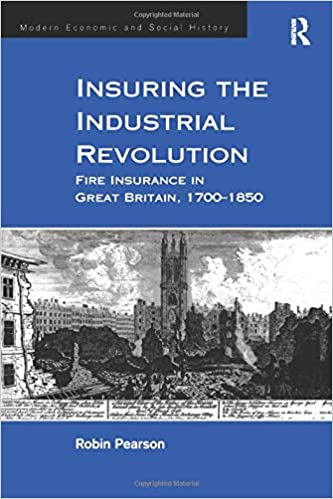Some of the Blogs will contain supplementary additions. Those added after January 1, 2015 will probably be dated, barring oversight. Readers may note that many of the cites are Texas cases. This resulted from the history of the contents.
COMMANDMENT NINE: FIGHT FAIR, DON’T CHEAT
Given the purposes and context in which the early versions of the essays were written, many of the legal rules explicitly numbered are from The Texas Rules that were built upon the ABA Model Rules.
not habitually violate established rule of procedure or of evidence.
2. 3.05(b)/3.03(a)(3): Do not seek or participate in ex parte
proceedings.
temporary restraining orders), do not seek ex parte proceedings.
In any legitimate ex parte proceeding, make full disclosure of all relevant
facts known.
disclosed, whether in an ex parte proceeding or not.
6. 3.03(a)(5): Do not use evidence you know is false. (This includes your client’s testimony, and
the testimony of any other witness.)
which you later come to know is false, the lawyer shall first attempt to
persuade the client to authorize withdrawing evidence. If the client refuses, the lawyer shall take
reasonable remedial steps, including withdrawing the evidence without the
client’s consent (if that is reasonable under the circumstances).
party’s access to evidence. (Destroying evidence
when a dispute is anticipated falls within this rule, as does concealing documents and hiding witness
information).
9. 3.04(b): Don’t falsify evidence. (Proposed Rule
§ 3.52(i).)
10. 3.04(b): Don’t bribe witnesses. Don’t even try.
it.
through the media) either for or against your client.
directly contact a person (“Person”) whom you know to be represented by counsel. If you believe, or even if you have some reasonable evidence that Person is represented, contact Person at first for the sole purpose of determining representations. Make this clear. If you get no response do it again. After two tries, indicate that if you do not “hear” otherwise, in a way supported by evidence, you will assume that they are not represent ed.
judges are all technically forbidden, but it is difficult to see how this
stringent rule works in a world in which there are small towns, churches,
service clubs, country clubs, and election politics. Thus, the real rule may be this: ex parte conversations are permitted, so long
as they are not about the merits of a given case. It should probably not even be about
scheduling matters. All ex parte
conversations on the merits of a given case are forbidden and are
grieveable. However, not every ex parte
communication warrants reversal. Drombny
v. C.I.R., 113 F.3d 670 (7th Cir. 1997) cert denied 522 U.S. 916
(1997).
communications is to prevent lawyers from influencing judges improperly. However, lawyers should not even seek to get
information from judges about pending cases.
Nor should lawyers engage in ex parte communications where cases might
come to be pending, (i.e., impending filings).
Similarly, if there are two judges in the same district, lawyers should
not engage in ex parte communications with one of them, when the other has the
case in question. Codes of Judicial
Ethics frequently require judges to avoid the appearance of impropriety. Lawyers should respect this stricture upon
judges and not create problems for them.
Question: Should lawyers
who frequently practice in the courts of judges take those judges to expensive
football games? Should they fly them
around on their private planes? Should
they rent boats for deep sea fishing trips?
Another Question: Is there
a line between philosophical discussions of jurisprudence and legal doctrine,
and ex parte communications?
avoid bringing frivolous lawsuits.
Frequently, it is hard to tell at the beginning what is frivolous and
what is not, and most courts know this.
Still, there is a duty of investigation.
VKK Corp. v. National Football League, 55 F. Supp.2d 229
(S.D.N.Y. 1999). In this case the court
noted that “attorneys, as officers of the Court, may not be blind to unprovable
or legally discredited claims and should refuse to prosecute merely vexatious
and unreasonable proceedings. However,
even seemingly flagrant abuses of the judicial process are difficult to weigh
and without conclusive illustration do not warrant sanctions.” Id. at 231. Senior Judge Pollack suggested that a partial
solution to the problem is “to oversee actively and rein in excessive advocacy
to forestall runaway litigation of claims that can give rise to the excesses
that do occur when tight judicial supervision is not applied.” Id.67
Parties. Lawyers should not
communicate with parties to lawsuits who are represented by counsel or with
managerial-level employees of such parties.
Weeks v. Independent School District No. I-89, 230 F.3d 1201
(10th Cir. 2000) (sanction: disqualification); Hill v. St. Louis University,
123 F.3d 1114, 1121 (8th Cir. 1997); United States v. Eckerd Corp., 35
F.Supp.2d 896 (N.D. Fla. 1999); Essex County Jail Annex Inmates v.
Treffinger, 18 F.Supp.2d 418 (D.N.J. 1998); Sharp v. Leonard Stulman
Enterprises Ltd. Partnership, 12 F. Supp.2d 502 (D.Md. 1998). Palmer v. Pioneer Hotel & Casino,
19 F.Supp.2d. 1157, 1165 (D. Nev. 1998) (restricting the rule to managerial
employees but noting that a sous chef is a supervisor and therefore holds a
managerial position); American Canoe Ass’n v. City of St. Albans, 18
F.Supp.2d 620, 621-22 (S.D.W. Va. 1998)(noting that the rule is rather more
complicated for government officials who have jobs that interface with the
public and that communications by such officials are allowed under many state
statutes); Pauling v. Secretary of the Dept. of Interior, 964 F. Supp.
117 (S.D.N.Y. 1997). In general, a
lawyer may contact former employees of an adverse party. U.S. v. Beiersdorf-Jobst, Inc., 980 F.
Supp. 257 (N.D. Ohio 1997). “[F]ederal
judges may apply state sanctions rules to pleadings filed in state court prior
to removal.” Tompkins v. Cyr, 995
F. Supp. 689 (N.D. Tex. 1998) aff’d 202 F.3d 770 (5th Cir. 2000). In Tompkins, the court considered both
Rule 11 sanctions and Rule 13 sanctions and did not sanction
anybody. The court’s reasons were both
procedural and substantive. (This case
involved a suit against 38 different pro-life activists. The plaintiff obtained a verdict against 11
of the defendants and was awarded $8.5 million in actual exemplary
damages. The other 27 defendants were
found not liable and moved for sanctions on the grounds that the cases against
them were frivolous.)
an employee of a target (soon-to-be) defendant before actual litigation is
commenced, the lawyer may well violate applicable rules. This is certainly true if the lawyer knows
that the adverse party is represented by an attorney on the subject matter of
the communication. On the other hand, if
the adverse party is not represented, or if the attorney has no reason to
believe that the adverse party is represented, then he may contact the
employee. Stahl v. Wal-Mart Stores,
Inc., 47 F. Supp.2d 783 (S.D. Miss. 1998).
(In this case, the court refused to strike the witness of the retailer
contacted, but it would not permit an expert witness to rely upon the
attorney’s account of the communication.
The court required the expert witness to ground his opinion solely upon
evidence from “permissible” sources. Id.
at 790-91. Thus, violations or near
violations of rules of professional conduct may lead to the exclusion of
evidence in oblique ways. Was the court
correct here?)
store of a target defendant to gather evidence?
What about doing undercover work?
This comes up in trademark, unfair competition, trade secrets, covenant
not to compete, in similar cases.
Sometimes litigants try to exclude evidence gathered in this way,
because they claim it was gathered in violation of the ethical rules. At least some courts tend to be lenient about
this. Gidatex, S. R. L. v.
Canpaniello Imports, Ltd., 82 F.Supp.2d 119 (S.D.N.Y. 1999) (reviewing
cases).68 Here is key language from Gidatex: “[E]nforcement of the trademark law is to
prevent consumer confusion is an important policy objective, undercover
investigators provide an effective enforcement mechanism for detecting and
proving anti-competitive activity which might otherwise escape discovery or
proof. It would be difficult, if not
impossible, to prove a theory of ‘palming off’ without the ability to record
oral sales representations made to consumers.
Thus, reliable reports from investigators posing as customers are
frequently recognized as probative and admissible evidence in trademark
disputes.” 82 F.Supp.2d at 124.
contacts in federal litigation. However,
sometimes special federal rules apply.
Thus, a lawyer representing a plaintiff in an FELA case may accept
evidence the person currently employed by a railroad. Normally this would be prohibited, but there
are special rules governing the gathering of evidence in FELA cases. Pratt v. Nat’l Ry. Passenger Corp., 54
F.Supp.2d 78 (D. Mass. 1999).
manner an adverse party’s material that he knows to be privileged or
confidential, then he should refrain from using the material and should notify
adverse counsel. The lawyer then either
should follow the instructions of the adverse lawyer or should obtain a
definitive disposition from an appropriate court. (ABA Formal Opinion 94-382).
Confidentiality. No lawyer should
ever try to pry information out of the other side’s former lawyer. This is true even if the former lawyer wants
to breach his duty of confidentiality and make inappropriate disclosures. AG GRO Services Co. v. Sophia Land
Co., Inc., 8 F. Supp.2d 495 (D. Md. 1997).. Return
Privileged Stuff Disclosed By Mistake.
When a lawyer fails to return privileged or confidential material
illegitimately acquired and fails to observe the principle set forth in ABA
Formal Opinion 94-382, it is still not necessarily the case that the lawyer
should be disqualified. Disqualification
depends not only upon the breach of a legal standard, but also upon a series of
aggravating or mitigating factors and upon whether the other side has been
prejudiced. In re Meador, 968
S.W.2d 346 (Tex. 1998). (In Meador,
counsel was not disqualified. One of the
principal reasons he was not disqualified is that he did not participate in
wrongfully obtaining documents from the other side. He simply received them.)
Adverse Authority. Fighting fair
requires disclosing directly adverse authority.
Plant v. Does, 19 F. Supp. 2d 1316 (S.D. Fla. 1998). In this case, the court indicated that the
plaintiffs’ counsel “contended that he was not obligated to disclose…adverse
authority because he was not personally involved in those adverse cases.” Id. at 1319. The court, of course, was outraged. “While the Court can certainly understand an
attorney’s desire to reach a resolution
most favorable to his client, higher than the requirements of zealous advocacy
are the obligations of truth, honesty, and ethical virtue.” Id.
Very strangely, one court recently refused to award attorneys’ fees for
checking the citations of the opponent.
Cryptically, the court remarked, “It is not Plaintiffs’ counsel’s
responsibility to check opposing counsel’s cites.” Apple Corps. Ltd., MPL v. Int’l Collectors
Society, 25 F. Supp.2d 480, 488 (D.N.J. 1998).
although some delay tactics are unacceptable.
(These would include lying to the court or to another lawyer.) Moreover, one is permitted to advocate colorable
claims, even if they are unlikely. (To
some extent, litigation is like a football game: sometimes improbable plays
win.) At the same time, it is cheating
to give absurd, unreasonable, or frivolous arguments. Indeed, such conduct is sanctionable when the
argument “is so lacking in logic, rationale, and authority, it could have only
been interposed for purposes of delay.” Lippman
v. Town of Lincolnville, 739 A.2d 842, 843 (Me. 1999) (sanction visited
upon attorneys and clients).





Recent Comments